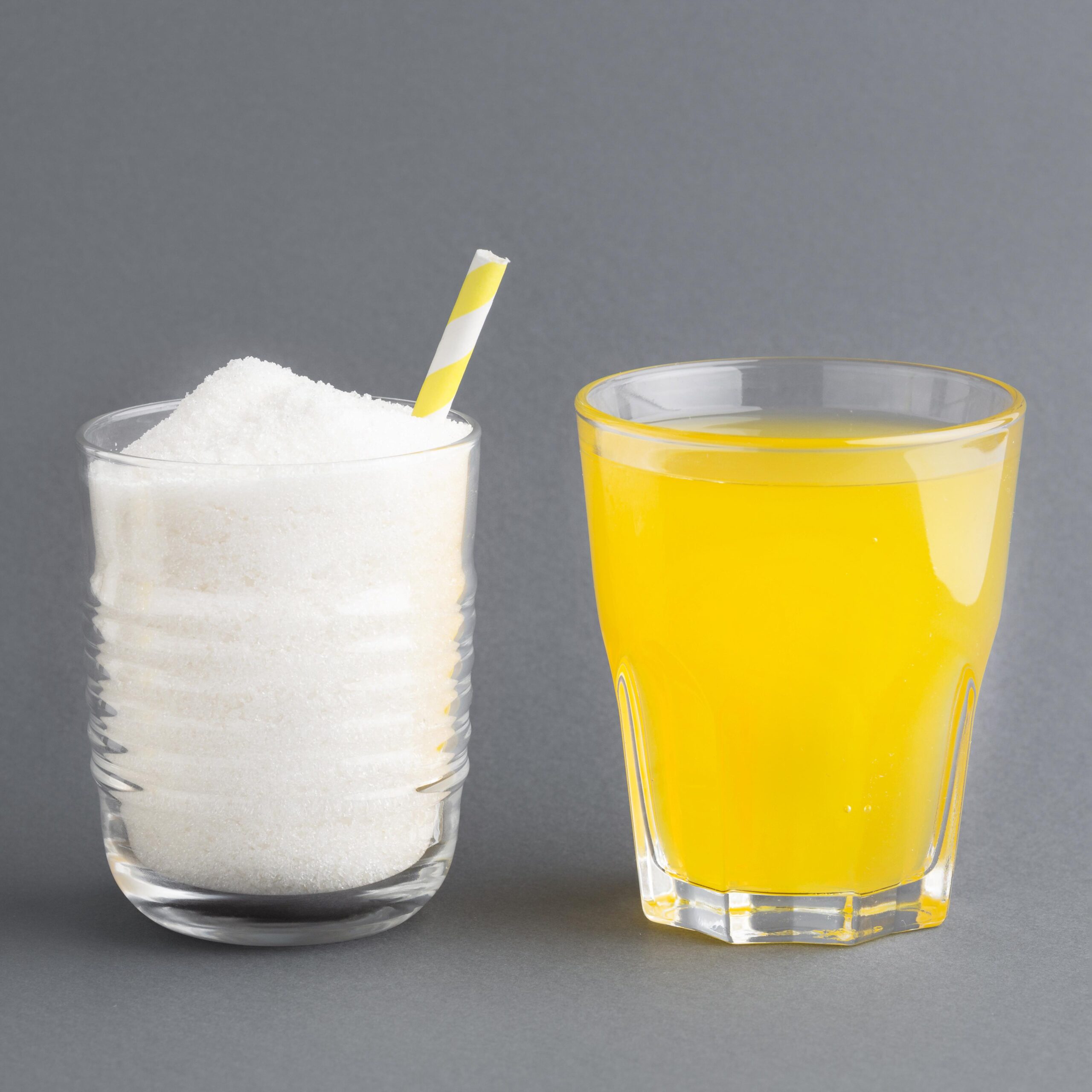Introduction: The Aspartame Debate
Aspartame is one of the most widely used artificial sweeteners in the world, found in everything from diet sodas to sugar-free gum. If you’ve ever grabbed a zero-calorie drink or torn open a tiny packet of sweetener, there’s a good chance you’ve encountered aspartame. But despite its popularity, many people still wonder: “Should we be wary of aspartame?”
It’s a fair question. Over the past few decades, aspartame has been surrounded by debates, rumors, and sensational headlines linking it to everything from headaches to cancer. Some consumers swear it’s perfectly safe, while others claim it worsens their health. Even if you’ve never given aspartame a second thought, you’ve probably stumbled across social media posts or articles that ask whether it poses a risk.
This article takes a deep dive into the science, controversies, and global regulatory stances on aspartame. We’ll explore how aspartame is made, how it interacts with your body, and what scientific studies (both past and present) say about its health effects. By the end, you’ll have the knowledge you need to make an informed decision about including or avoiding aspartame in your diet. So, let’s get started.
What Is Aspartame?
Aspartame is a low-calorie artificial sweetener discovered in 1965 by chemist James M. Schlatter. It’s approximately 200 times sweeter than sugar, which means only a tiny amount is needed to achieve the same sweet flavor as table sugar (sucrose). Because it’s so potent, aspartame is often used in “diet” or “light” versions of foods and beverages to reduce their overall sugar and calorie content.
Key Components
Chemically, aspartame is made up of three main components:
- Aspartic Acid – An amino acid commonly found in protein-containing foods, such as meat, fish, and eggs.
- Phenylalanine – Another amino acid that’s essential in the diet because our bodies can’t produce it on their own.
- Methanol – A simple alcohol that can also be produced by the metabolism of certain fruits and vegetables.
When aspartame is ingested, these components break down in your digestive tract. Each of these breakdown products can also be found in nature—most people consume them regularly in other foods. However, the unique combination and the artificial production process have made aspartame a hot topic in health discussions.
Where You’ll Find It
Aspartame is often labeled under brand names like Equal® or NutraSweet®, and it’s commonly found in:
- Diet soda and other sugar-free beverages
- Sugar-free or low-calorie yogurt
- Sugar-free gum
- Low-calorie desserts and puddings
- Condiments like sugar-free syrups and sauces
If you’re looking to identify aspartame on a product label, always check the ingredient list. It might be listed under its chemical name or one of its brand names.
How Aspartame Works in the Body
Before we answer whether we should be wary of aspartame, it helps to understand how it’s metabolized. When you consume aspartame, your digestive system breaks it down into its component parts—phenylalanine, aspartic acid, and methanol.
- Phenylalanine is used by your body to make proteins and certain neurotransmitters, such as dopamine and norepinephrine.
- Aspartic Acid is also incorporated into proteins and can act as an excitatory neurotransmitter in the central nervous system.
- Methanol is converted into formaldehyde and formic acid in the body. While these substances can be toxic in very high amounts, the levels produced from normal aspartame consumption are generally considered safe, according to several regulatory agencies including the U.S. Food and Drug Administration (FDA) and the European Food Safety Authority (EFSA).
For healthy individuals, these byproducts are excreted or used in standard metabolic processes. However, individuals with a rare genetic condition called phenylketonuria (PKU) must avoid or limit phenylalanine in their diets because their bodies cannot metabolize it properly. This is why you’ll see warning labels on products containing aspartame that advise individuals with PKU to avoid the product.
Common Controversies and Concerns
The controversies surrounding aspartame are as varied as they are heated. Let’s break down the most common concerns and see what science says about them.
4.1 Cancer Risks
Perhaps the most alarming claim you’ve heard is that aspartame causes cancer. This worry took hold largely due to animal studies in the 1970s and 1980s, where extremely high doses of aspartame were given to lab rats. Some studies appeared to show an increased risk of certain tumors at these mega-doses.
What the Research Says
- A 2007 study from the European Ramazzini Foundation suggested a link between aspartame and lymphoma in rats, but these findings have been heavily debated and criticized by experts for methodological issues.
- The National Cancer Institute has conducted epidemiological studies on artificial sweeteners, including aspartame, and found no consistent evidence linking them to an increased cancer risk in humans.
- A large study published in 2022 in the journal PLOS Medicine examined data from over 100,000 participants, finding mixed results on the association between artificial sweeteners and cancer risk. However, the researchers cautioned that more randomized controlled trials are needed before drawing conclusive results.1
Most regulatory bodies maintain that at current usage levels, aspartame does not pose a carcinogenic risk to humans.
4.2 Neurological Effects
Stories abound linking aspartame to headaches, migraines, and even neurodegenerative diseases like Alzheimer’s. Some people report experiencing brain fog or dizziness after consuming products containing aspartame.
What the Research Says
- A review published in Nutrients in 2019 concluded that while some individuals might be sensitive to aspartame, there isn’t robust evidence that it causes neurological harm in the general population.2
- Headaches can be triggered by a variety of factors—hydration levels, stress, lack of sleep, caffeine withdrawal, etc. While it’s possible that some people are sensitive to aspartame, large-scale studies have not definitively proven it as a trigger for migraine in the majority of people.
4.3 Weight Management and Metabolism
Aspartame is often used in diet products to reduce calorie intake. But some argue that swapping sugar for artificial sweeteners might sabotage weight-loss efforts or alter metabolism in unpredictable ways.
What the Research Says
- Some observational studies suggest that people who regularly consume artificially sweetened beverages may have a higher body mass index (BMI). However, these studies don’t prove cause and effect. It’s possible that individuals who are already overweight or obese are more likely to choose diet products.
- The American Heart Association mentions that while artificial sweeteners can help cut calories, they are not a magic bullet for weight loss. It’s crucial to maintain an overall healthy diet and exercise plan.
- Randomized controlled trials (which are considered the gold standard of scientific research) generally show that replacing sugary drinks with diet versions can help reduce total calorie intake, at least in the short term. But the long-term impact on weight maintenance is still under investigation.
4.4 Gut Health
The growing field of gut microbiome research has spotlighted how different foods and additives might influence our internal bacterial ecosystem. Does aspartame disrupt gut flora in a harmful way?
What the Research Says
- A few studies on rodents suggest high doses of artificial sweeteners could alter the gut microbiome, potentially leading to glucose intolerance and metabolic changes.
- Human studies are more limited, and the results are mixed. One small-scale study showed that some artificial sweeteners might affect gut bacteria in ways that could impact insulin sensitivity, but more comprehensive human trials are needed to draw firm conclusions.
Scientific Evidence on Aspartame Safety
If the question is, “Should we be wary of aspartame?” the best way to approach it is by looking at the scientific consensus rather than isolated studies or anecdotes. Over the decades, numerous regulatory agencies and health organizations have performed extensive evaluations of aspartame’s safety profile.
- The U.S. Food and Drug Administration (FDA) first approved aspartame in 1981. According to their assessment, aspartame is safe for the general population under normal usage conditions.3
- The European Food Safety Authority (EFSA) conducted a full risk assessment in 2013 and concluded that aspartame and its breakdown products are safe for human consumption at current levels.
- The World Health Organization (WHO) has also issued statements indicating that, based on available evidence, aspartame does not pose a significant health risk when consumed in moderation.
Acceptable Daily Intake (ADI)
Most regulatory agencies set an Acceptable Daily Intake (ADI) for aspartame, which is the amount a person can safely consume every day over a lifetime without adverse effects. For aspartame, the ADI is typically 40 mg per kilogram of body weight per day in the European Union and 50 mg per kilogram in the United States.
- Example: If you weigh 70 kg (about 154 lbs), your ADI under the FDA guideline is 3,500 mg of aspartame per day. One can of diet soda contains roughly 180 mg of aspartame, so you’d have to drink more than 19 cans in a single day to exceed the U.S. ADI.
Of course, few people come close to consuming that level of aspartame daily. Still, it’s good to know where the threshold lies.
Regulatory Stances Around the World
Because food safety standards can vary by country, it’s worth taking a quick look at how different nations view aspartame:
- United States: The FDA has approved aspartame as a food additive since 1981. The agency regularly reviews new studies and maintains that aspartame is safe.
- European Union: EFSA’s 2013 comprehensive risk assessment reaffirmed the safety of aspartame at the current ADI of 40 mg/kg of body weight per day.
- Australia and New Zealand: Food Standards Australia New Zealand (FSANZ) also endorses aspartame as safe for consumption within recommended guidelines.
- Canada: Health Canada recognizes aspartame as a safe sweetener and sets an ADI similar to other nations.
Despite occasional sensational headlines, none of these major regulatory bodies have reversed their stance on aspartame’s safety. This global consensus doesn’t mean aspartame is risk-free for every individual, but it does indicate that large-scale, population-level harm from moderate consumption is unlikely based on current data.
How to Make Informed Choices
While regulatory agencies may agree that aspartame is safe for most people, the final decision about what you put in your body is yours. If you’re still asking yourself, “Should we be wary of aspartame?” consider these practical tips:
- Assess Your Sensitivity: If you suspect you have a sensitivity to aspartame—maybe you experience headaches or bloating after consuming it—try cutting it out for a few weeks. Keep a food journal to see if symptoms improve.
- Read Labels: If you want to avoid aspartame, start by reading nutrition labels. Aspartame can be found in surprising places, including flavored water, protein shakes, and even some children’s medications.
- Moderation Is Key: Even if you decide aspartame is acceptable in your diet, moderation is always a wise approach. Relying heavily on diet sodas or sugar-free treats may crowd out more nutrient-dense whole foods in your diet.
- Consider Alternatives: Aspartame is just one of several artificial sweeteners. Others include sucralose (Splenda®), saccharin (Sweet’N Low®), and stevia (a natural sweetener derived from the Stevia rebaudiana plant). Each has its own pros and cons.
- Focus on Overall Diet Quality: Whether you choose sugar, aspartame, or another sweetener, remember that your overall diet matters more than any single component. A balanced diet rich in fruits, vegetables, whole grains, and lean proteins will serve you better in the long run than focusing too intently on one ingredient.
Questions to Guide Your Decision
- Do you experience noticeable side effects when you consume aspartame?
- Are you meeting your daily nutrient needs (vitamins, minerals, fiber)?
- Are your primary goals weight management, blood sugar control, or simply cutting back on sugar?
- Have you consulted a healthcare professional, especially if you have a condition like diabetes or PKU?
Answering these questions can help you decide whether aspartame fits within your lifestyle and dietary goals.
Conclusion and Next Steps
Aspartame has been on the market for decades, serving as a calorie-free way to sweeten a wide range of products. Scientific consensus—from the FDA to EFSA—generally considers aspartame safe for the majority of the population when consumed within recommended limits. Yet, the persistent debates, anecdotal reports, and evolving research keep the question alive: “Should we be wary of aspartame?”
The answer largely depends on individual health factors, personal sensitivities, and overall dietary context. If you have a condition like phenylketonuria or suspect you have a personal intolerance, you’ll definitely want to avoid aspartame. For everyone else, moderate use seems to pose minimal risks based on current scientific data.
Of course, as with any nutritional choice, informed decision-making is the name of the game. If aspartame helps you reduce sugar intake without sacrificing taste, it could be a beneficial tool. If you prefer to steer clear due to lingering worries or specific health concerns, there are plenty of other sweeteners (both natural and artificial) available. The key is maintaining a balanced diet and focusing on whole foods whenever possible.
References and Further Reading
(Note: Links provided are for reference purposes. Always consult with healthcare professionals for personalized medical advice.)
Disclaimer: This article is for informational purposes only and does not constitute medical advice. Always consult with a qualified healthcare provider for personalized guidance regarding your health and dietary choices.
































